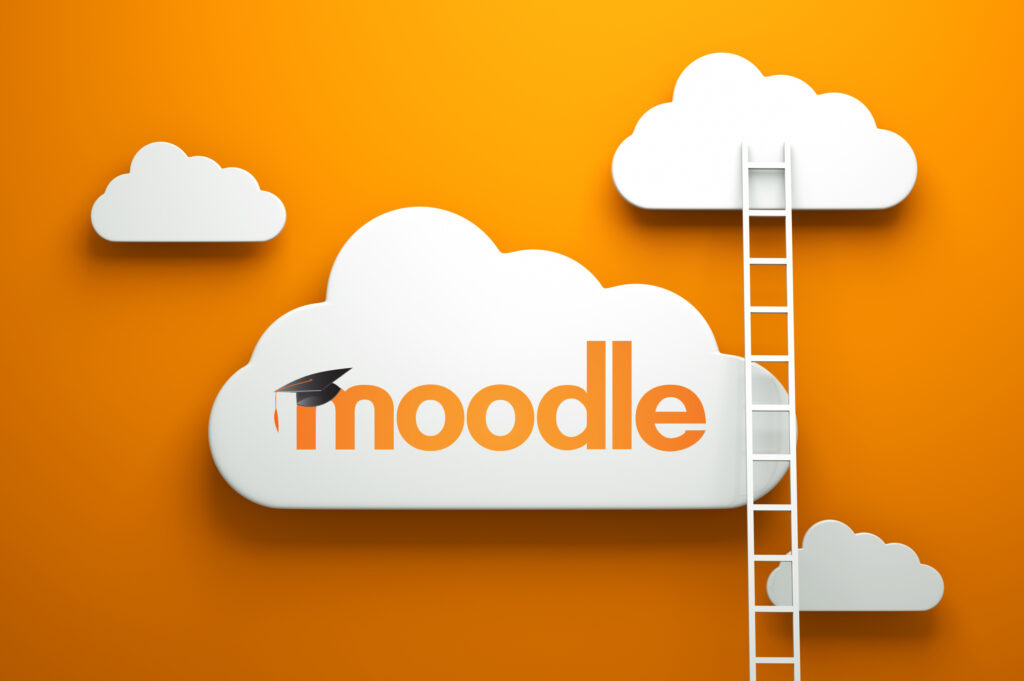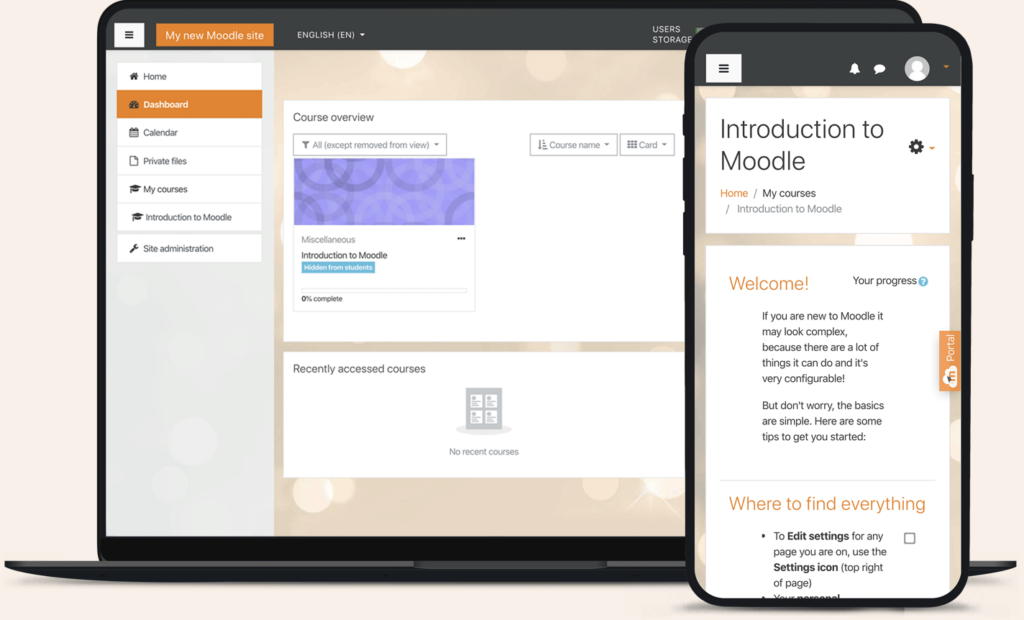Let’s share more on Moodle on shared hosting. Moodle enables educators to create, manage, and deliver online courses and educational content.
Educational institutions often face budget constraints when adopting innovative technologies to enhance student learning.
However, Moodle has come up to provide the following;
- Cost-effective solutions are vital for providing quality education while maintaining finances. Moodle provides these for educational institutions:
- Affordability- open-source platforms like Moodle are generally free to use. Now educators can teach and collaborate with learners without cost.
- Customizability- Moodle allows institutions to tailor the platform according to their needs and requirements without incurring additional expenses.
- Scalability- as educational institutions grow, they can quickly scale up their Moodle platform to accommodate more students and courses without increasing costs.
- Lower maintenance costs- since Moodle is open-source, the maintenance expenses are typically lower than proprietary LMS solutions.
Shared hosting as a budget-friendly option
Shared hosting is a budget-friendly option for hosting Moodle or any website. It involves multiple websites sharing the same server and its resources.
Key points about shared hosting:
- Cost-effectiveness- it’s an affordable option because the cost of maintaining the server is distributed among multiple users. An excellent choice for educational institutions with limited budgets.
- Easy setup- shared hosting providers offer user-friendly control panels. They simplify setting up and managing the Moodle platform or any other website.
- Technical maintenance- the hosting provider is responsible for server maintenance, security updates, and technical support. Now educate your students with ease.
- Resource limitations- resources are shared, and high traffic or resource-intensive activities on one website may impact the performance of others on the same server. However, shared hosting provides sufficient resources for most small to medium-sized educational institutions.
- Scalability- shared hosting is suitable for starting with Moodle or an essential website. Later consider more advanced hosting options like VPS (Virtual Private Server) or dedicated hosting when the site grows.
Limitations
- Resource limitations: As resources are shared among multiple websites, high traffic or resource-intensive processes on one site can affect others, potentially impacting Moodle’s performance during peak usage.
- Customization restrictions: Shared hosting may have specific limitations on software installations or configurations, which could restrict advanced customization options for Moodle.
- Security risks: Since multiple websites share the same server, security vulnerabilities are higher. If one website is hacked, it could affect all the other websites on the server.
Before installing Moodle on shared hosting, consider the following:
- Disk space: At least 1 GB
- Bandwidth: Adequate for expected user activity
- Database: Support for MySQL or PostgreSQL
Read about this and more here.
Best Moodle practices on shared hosting
- Choose a reliable hosting provider. Not all shared hosting providers are created equal. Some providers offer better performance and support than others. Research to find a provider with a good reputation for running Moodle.
- Keep your Moodle installation up to date. Moodle is constantly being updated with new features and security fixes. It’s essential to keep your Moodle installation up to date to ensure it runs as smoothly and securely as possible.
- Use a caching plugin. A caching plugin can help improve your Moodle site’s performance by storing static content in memory. It frees up resources for other tasks, such as serving dynamic content.
- Optimize your database. Your Moodle database can become bloated over time, slowing down your site. You can optimize your database by running a regular maintenance script.
- Monitor your usage. Monitoring your Moodle site’s usage is essential to ensure you’re within your hosting provider’s resources. You may need to upgrade your hosting plan if you see performance issues.
- Use a light Moodle theme. Some Moodle themes are weighty, which can slow down your site. Use a light theme to improve performance.
- Minimize the use of embedded media. Embedded media, such as videos and audio files, can also slow down your site. Minimize the use of embedded media, or use a CDN to serve the media files.
To troubleshoot common Moodle issues:
- Monitor performance, optimize the database, implement caching, and review plugins.
- Monitor resource usage, optimize settings, use CDN, manage database, and upgrade hosting plan.
- Review error logs, verify file permissions, check the PHP version, update Moodle and plugins, and seek community support.
By doing so, educators can maintain a stable and responsive Moodle platform for students.
Final words;
Moodle offers educational institutions a cost-effective and powerful solution to deliver online education.
Budget-friendly shared hosting enables educational institutions to create an engaging and accessible learning environment for students affordably.
Empowering education on a budget is essential, enabling institutions to provide high-quality learning experiences without financial strain.
Maximize Moodle on shared hosting with best practices for an engaging learning environment. Now empower education’s future affordably.






